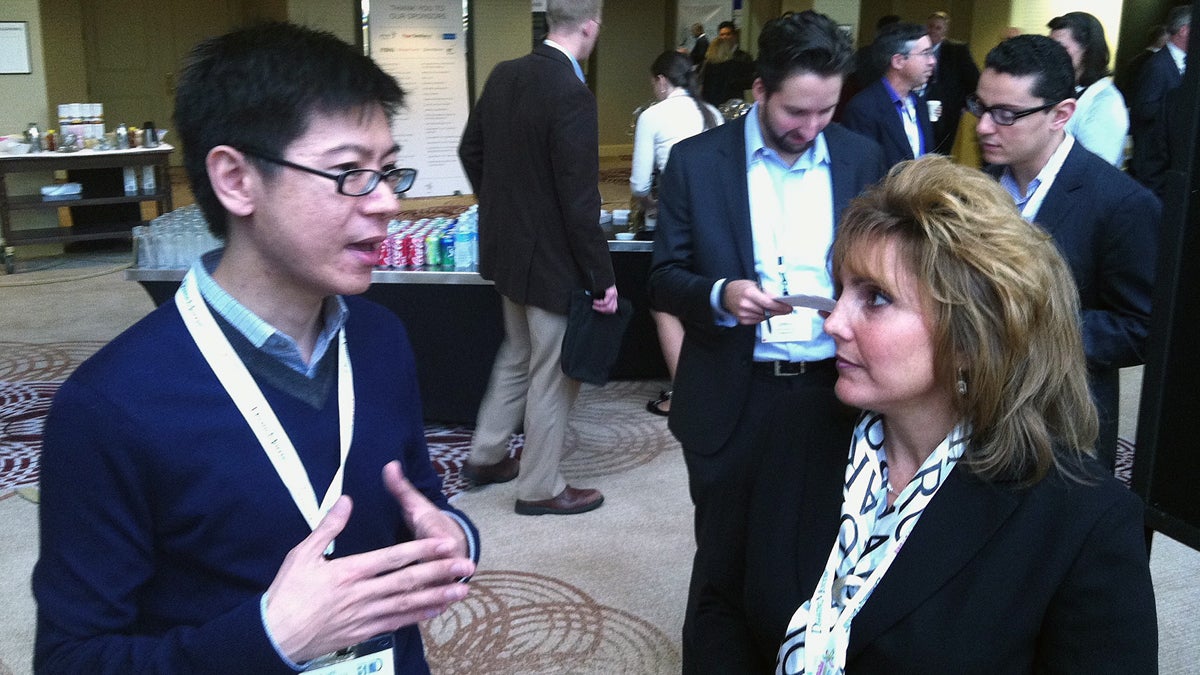As industry changes, FDA chief details efforts to rev up drug-approval process
Listen
Members of the area's life-sciences sector met for a conference in Philadelphia this week. (Elana Gordon/WHYY)
The nation’s top drug regulator met with leaders of the life-sciences sector in Philadelphia this week, and efforts to improve the drug development and approval process took center stage.
Moving a drug from scientific concept to commercial therapy can be a long, arduous process, but advances in science and technology have put the whole biomedical field in a very different position today. It’s one that’s creating new challenges and opportunities.
These were main themes of Tuesday’s event, as Margaret Hamburg, head of the U.S. Food and Drug Administration, spoke to a crowd of hundreds of business and academic leaders during a life-sciences conference. Hamburg says there has been a lot of progress, especially on accelerating therapies for rare illnesses where few, if any, other options exist.
“When there is a really promising new candidate drug that shows early evidence of clinical value, we don’t want it to be treated as business as usual,” she said, referring to the FDA’s recently established breakthrough designation program.
Even so, she defended what can be a rigorous approval system, with patient safety being paramount. And she acknowledged that her agency could do more to improve regulatory measures as new technologies and clinical designs emerge.
“I was encouraged to hear her comments,” said Joshua Tarnoff, president of a Pittsburgh startup, Complexa, that’s focused on new anti-inflammatory therapies. Complexa is part of a wave of startups throughout the region, as big pharmaceutical companies look to outsource research and development.
“Smaller companies, in particular, face an issue of trying to get a drug through the FDA’s process, which was kind of built around the big pharma world,” he said after Hamburg’s talk. “Now you have startups replacing a lot of the big pharma. We’re small. We don’t have the resources.”
The more the FDA uses creative ways to guide the smaller companies through the approval process, the better, Tarnoff said. As it stands, he said, generating enough funds to take a product past even that early stage of discovery remains one of the biggest hurdles in a region trying to retain its talent, as some of the bigger industry anchors restructure.
WHYY is your source for fact-based, in-depth journalism and information. As a nonprofit organization, we rely on financial support from readers like you. Please give today.

